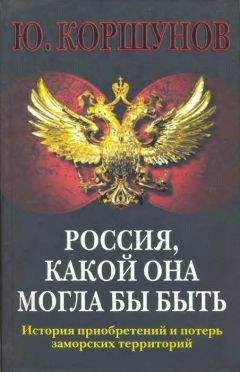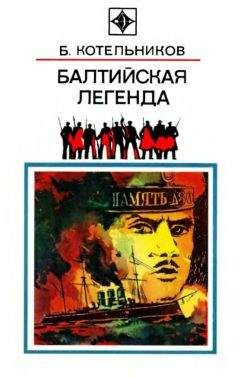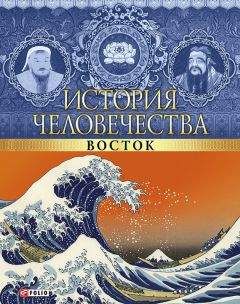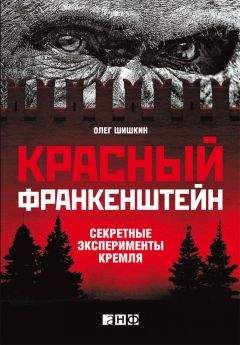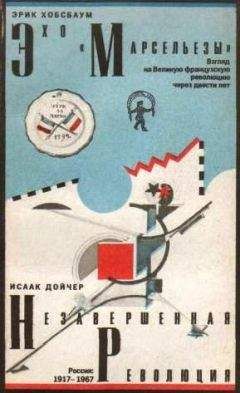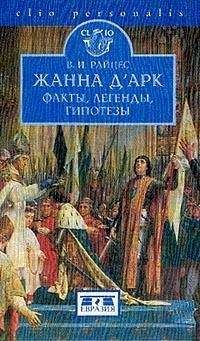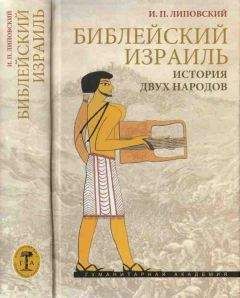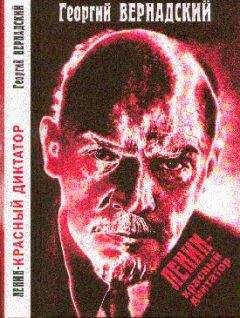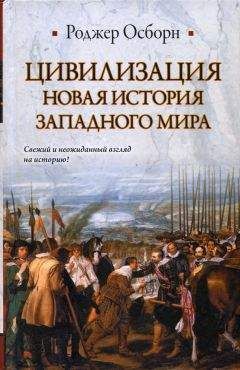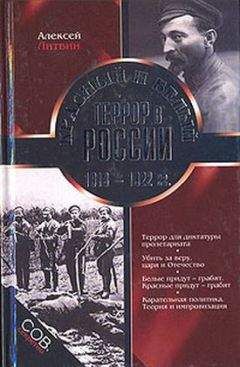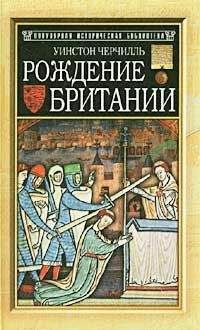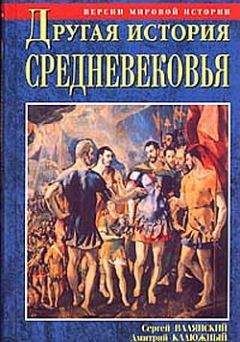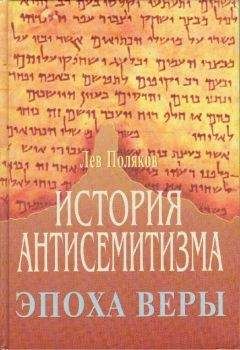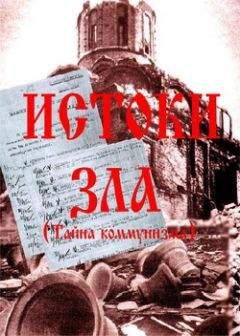Дэвид Пристланд - Красный флаг: история коммунизма
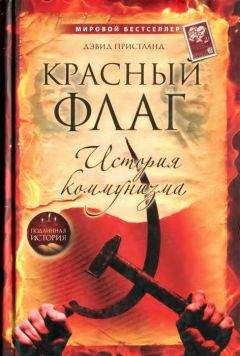
Скачивание начинается... Если скачивание не началось автоматически, пожалуйста нажмите на эту ссылку.
Жалоба
Напишите нам, и мы в срочном порядке примем меры.
Описание книги "Красный флаг: история коммунизма"
Описание и краткое содержание "Красный флаг: история коммунизма" читать бесплатно онлайн.
Что думают на Западе о коммунизме и советском строе, что думали раньше? Кто был первым коммунистом?
Фундаментальный труд английского профессора Оксфордского университета Дэвида Пристланда «Красный флаг. История коммунизма» представляет собой неожиданный взгляд на «коммунистический проект» с позиции стороннего наблюдателя.
Оригинальные суждения западного автора, интересные факты, неожиданные параллели, взгляд на советское общество как на «цивилизацию инопланетян» — все это, без сомнения, вызовет неподдельный интерес у отечественного читателя.
78
Подробное объяснение см. в G. Duveau, 1848. The Making of a Revolution, trans. A. Carter (London, 1967). О трудовой мотивации см. R. Bezucha, “The French Revolution of 1848 and the Social History of Work”, Theory and Society 12 (1983), pp. 469-84; M. Traugott, “The Crowd in the French Revolution of February 1848”, American Historical Review 93 (1988), pp. 638-52.
79
О ремесленниках и июньской революции см. R. Gould, Insurgent Identities: Class, Communities and Protest from 1848 to the Commune (Chicago, 1995).
80
О радикализме Маркса и Энгельса в Германии см. Gilbert, Marx’s Politics, ch. 10.
81
К. Marx and F. Engels, The Revolution of 1848-1849. Articles from the Neue Rhenische Zeitung, trans. S. Ryazanskaya, ed. B. Isaacs (New York, 1972), p. 136.
82
Об этом см. Gilbert, Marx’s Politics.
83
J. Sperber, The European Revolutions, 1848-1851 (Cambridge, 1994), p. 247.
84
J. Rougerie, “Sur l’histoire de la Premiere Internationale”, Mouvement Social, 51 (1965), pp. 23-46.
85
J. Rougerie, Le Proces des Communards (Paris, 1971), PP-155-6. О силе «ассоциативных» идей в Парижской коммуне, о ее защите промышленных и потребительских кооперативов и демократии см. М. Johnson, The Paradise of Association. Political Culture and Popular Organization in the Paris Commune of 1871 (Ann Arbor, 1996).
86
MECW, vol. II, p. 189.
87
Цитируется по Y. Kapp, Eleanor Marx (London, 1972), vol. I, p. 88.
88
K. Marx and F. Engels, Communist Manifesto, p. 243.
89
К. Marx, Critique of the Gotha Programme (Peking, 1974), pp. 15-21. Об этом «пути в будущее» см. Walicki, Marxism, p. 96.
90
Об этом обвинении см. D. Lovell, From Marx to Lenin. An Evaluation of Marx’s Responsibility for Soviet Authoritarianism (Cambridge, 1984), pp. 61-4.
91
K. Marx and F. Engels, Gesprache mit Marx und Engels, ed. H. Enzensberger (Frankfurt, 1973), vol. II, pp. 709-10.
92
McLellan, Karl Marx, p. 371.
93
Обзор и анализ этого влияния на рабочих см. в М. Mann, Sources of Social Power. Vol. 2: The Rise of Classes and Welfare States, 1760-1914 (Cambridge, 1993), pp. 597-601.
94
О различиях между ранними и поздними формами протеста см. D. Geary, European Labour Protest, 1848-1939 (London, 1981), pp. 35-7. Существуют разногласия по поводу радикализма рабочих того времени. Представленный здесь анализ во многом основывается на работе Mann, Sources of Power, vol. II, pp. 597-601, 680-2. Geary подчеркивает устойчивый радикализм, см. Geary, European Labour Protest, pp. 107-26.
95
Цитируется по D. Baguley, “Germinal: The Gathering Storm”, in B. Nelson (ed.), Cambridge Companion to Zola (Cambridge, 2007), p. 139.
96
E. Zola, Germinal, trans. P. Collier (Oxford, 1993), p. 288.
97
Там же, с. 349. Цитата по-русски из Э. Золя «Жерминаль»; перевод Н. Немчиновой (М., 1981).
98
Там же, с. 523- Цитата по-русски из Э. Золя «Жерминаль»; перевод Н. Немчиновой (М., 1981).
99
Об анализе этой ситуации см. Mann, Sources of Power, vol. II, chs.17-18; G. Eley, Forging Democracy. The History of the Left in Europe, 1850-2000 (New York, 2002), pp. 64-5, 79.
100
“The Diary of Nikolaus Osterroth”, in The German Worker. Working-Class Autobiographies from the Age of Industrialization, trans, and ed. A. Kelly (Berkeley, 1987), pp. 170-1.
101
Там же, с. 172.
102
Там же, с. 187.
103
E. Weitz, Creating German Communism 1890-1990: From Popular Protests to Socialist State (Princeton, 1997), p. 51.
104
Цитируется по The German Worker, p. 409.
105
V. Lidtke, The Alternative Culture: Socialist Labor in Imperial Germany (New York, 1985), pp. 186-7.
106
“The Diary of Otto Krille”, in The German Worker, p. 276.
107
Об этом см. S. Berger, “Germany”, in The Force of Labour, eds. S. Berger and D. Broughton (Oxford, 1995), p. 73.
108
Lidtke, Alternative Culture; B. Emig, Die Veredelung des Arbeiters. Sozialdemokratie als Kulturbewegung (Frankfurt am Main, 1980).
109
Lidtke, Alternative Culture, p. 88.
110
Там же, ее. 107-8; см. также А. Körner, Das Lied von einer anderen Welt. Kulturelle Praxis im franzosischen und deutschen Arbeitermilieu 1840-1890 (Frankfurt am Main, 1997), p. 117.
111
Weitz, Creating German Communism, p. 50.
112
Lidtke, Alternative Culture, p. 52.
113
“Diary of Otto Krille”, in The German Worker, pp. 267-8.
114
Eley, Forging Democracy, p. 79.
115
K. Kautsky, Selected Political Writings, trans, and ed. P. Goode (London, 1983), pp. 11-12.
116
S. Hickey, Workers in Imperial Germany: the Miners of the Ruhr (Oxford, 1985).
117
J. Rupnik, “The Czech Socialists and the Nation (1848-1918)”, in E. Cahm and V. Fisera (eds.), Socialism and Nationalism in Contemporary Europe (1848-1945), vol. II (Nottingham, 1979).
118
R. Evans, Proletarians and Politics. Socialism, Protest and the Working Class in Germany before the First World War (New York, 1990), p. 93.
119
August Bebel, Die Frau und der Sozialismus, цитируется по S. Berger, Social Democracy and the Working Class in Nineteenth and Twentieth Century Germany (Harlow, 2000), p. 89.
120
Об этом эпизоде см. James Joll, The Second International (London, 1968), p. 33.
121
Там же, р. 45.
122
Цитируется по G. Steenson, Karl Kautsky, 1854-1938: Marxism in the Classical Years (Pittsburgh, 1991), p. 47.
123
G. Steenson, «Not One Man! Not One Penny!» German Social Democracy, 1863-1914 (Pittsburgh, 1981), pp. 120-1.
124
Цитируется по Steenson, Karl Kautsky, pp. 120-1.
125
H. Goldberg, Life of Jean Jaures (Madison, 1962), ch. 11.
126
J. Miller, From Elite to Mass Politics. Italian Socialism in the Giolittian Era, 1900-1914 (Kent, Ohio, 1990), pp. 25-9.
127
О традиционном мнении, что этот конфликт возник до 1914 года, см. С. Schorske, German Social Democracy. The Development of the Great Schism (Cambridge, Mass., 1955); об объединении этого мнения — с аргументом о том, что именно война обусловила раскол в партии, см. W. Kruse, Krieg und nationalc Integration. Eine Neuinterpretation des sozialdemokratischen Burgfriedensschlusses, 1914-15 (Essen, 1993).
128
Цитируется по P. Gay, The Dilemma of Democratic Socialism. Eduard Bernstein’s Challenge to Marx (New York, 1952), p. 296.
129
О Бернштейне и ревизионизме см. М. Steger, The Quest for Evolutionary Socialism. Eduard Bernstein and Social Democracy (Cambridge, 1997).
130
О социал-демократическом праве и империализме см. R. Fletcher, Revisionism and Empire. Socialist Imperialism in Germany, 1897-1914 (London, 1984).
131
Цитируется по Н. Mitchell and P. Stearns, Workers and Protest: the European Labor Movement, the Working Classes and the Origins of Social Democracy, 1890-1914 (Itasca, 111., 1971), p. 211.
132
О принятии СДПГ доктрины «национальной обороны» см. N. Stargardt, The German Idea of Militarism (Cambridge, 1994), p. 148.
133
Газе Раппопорту, цитируется по G. Haupt, Socialism and the Great War. The Collapse of the Second International (Oxford, 1972), p. 208.
134
Цитируется по Joll, The Second International, p. 178.
135
«Конец Санкт-Петербурга» (1927), реж. B. Пудовкин. О сюжетных линиях фильма см. A. Sargeant, Vsevolod Pudovkin. Classic Films of the Soviet Avant-Garde (London, 2000), pp. 94-5.
136
О фильме и реакции на него см. V. Kepley, The End of St Petersburg: The Film Companion (London, 2003).
137
R. Wortman, Scenarios of Power: Myth and Ceremony in Russian Monarchy, Vol. 2: From Alexander II to the Abdication of Nicholas II (Princeton, 2000), pp. 351-8.
138
Цитируется по Wortman, Scenarios of Power, p. 354.
139
Там же, с. 362. Об этом событии см. cc. 358-64.
140
S. Kanatchikov, A Radical Worker in Tsarist Russia: the Autobiography of Semen Ivanovich Kanatchikov, trans, and ed. R. Zelnik (Stanford, 1986), p. 45.
141
G. Freeze, “The Soslovie (Estate) Paradigm and Russian Social History”, American Historical Review, 91 (1986), pp. 11-36.
142
Об отношении крестьян см. О. Figes, A People.s Tragedy. The Russian Revolution, 1891-1924 (London, 1996), pp. 98-102.
143
Kanatchikov, Radical Worker, pp. 9-10.
144
Цитируется по Т. McDaniel, Autocracy, Capitalism and Revolution in Russia (Berkeley, 1988), p. 172.
145
О влиянии романа «Что делать» на русскую интеллигенцию см. I. Paperno, Chernyshevsky and the Age of Realism: a Study in the Semiotics of Behavior (Stanford, 1988), pp. 30-2.
Подписывайтесь на наши страницы в социальных сетях.
Будьте в курсе последних книжных новинок, комментируйте, обсуждайте. Мы ждём Вас!
Похожие книги на "Красный флаг: история коммунизма"
Книги похожие на "Красный флаг: история коммунизма" читать онлайн или скачать бесплатно полные версии.
Мы рекомендуем Вам зарегистрироваться либо войти на сайт под своим именем.
Отзывы о "Дэвид Пристланд - Красный флаг: история коммунизма"
Отзывы читателей о книге "Красный флаг: история коммунизма", комментарии и мнения людей о произведении.





